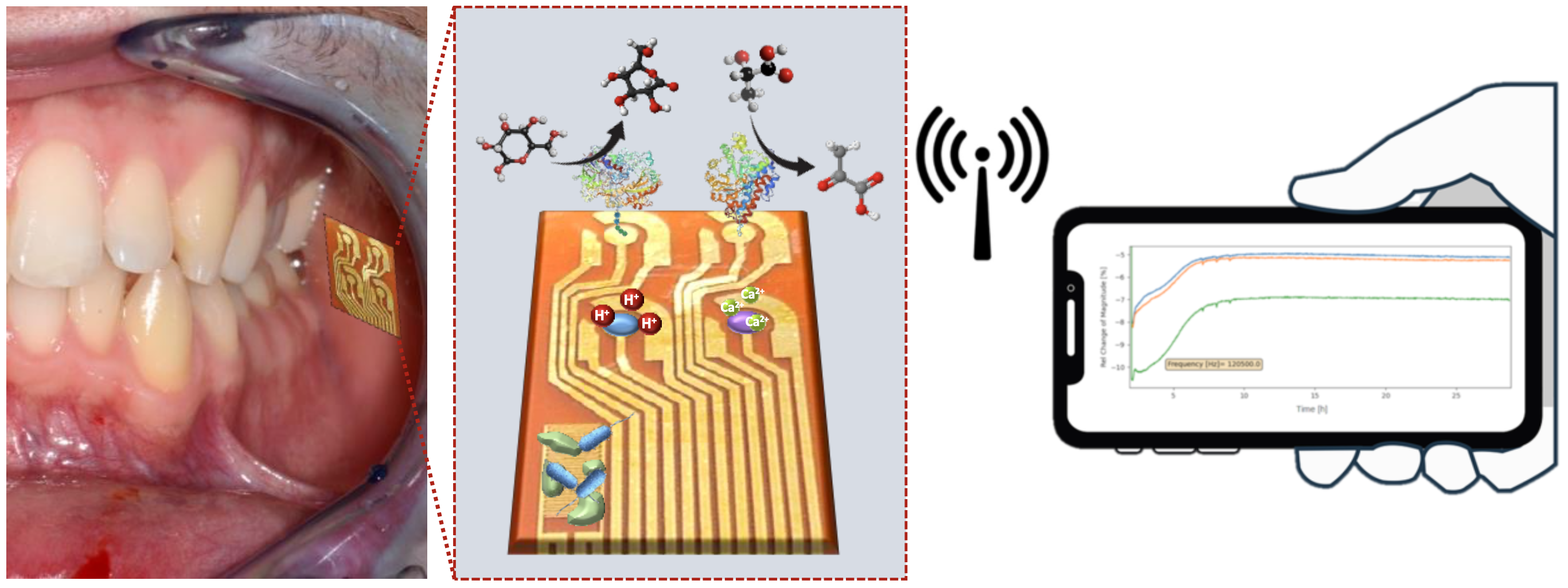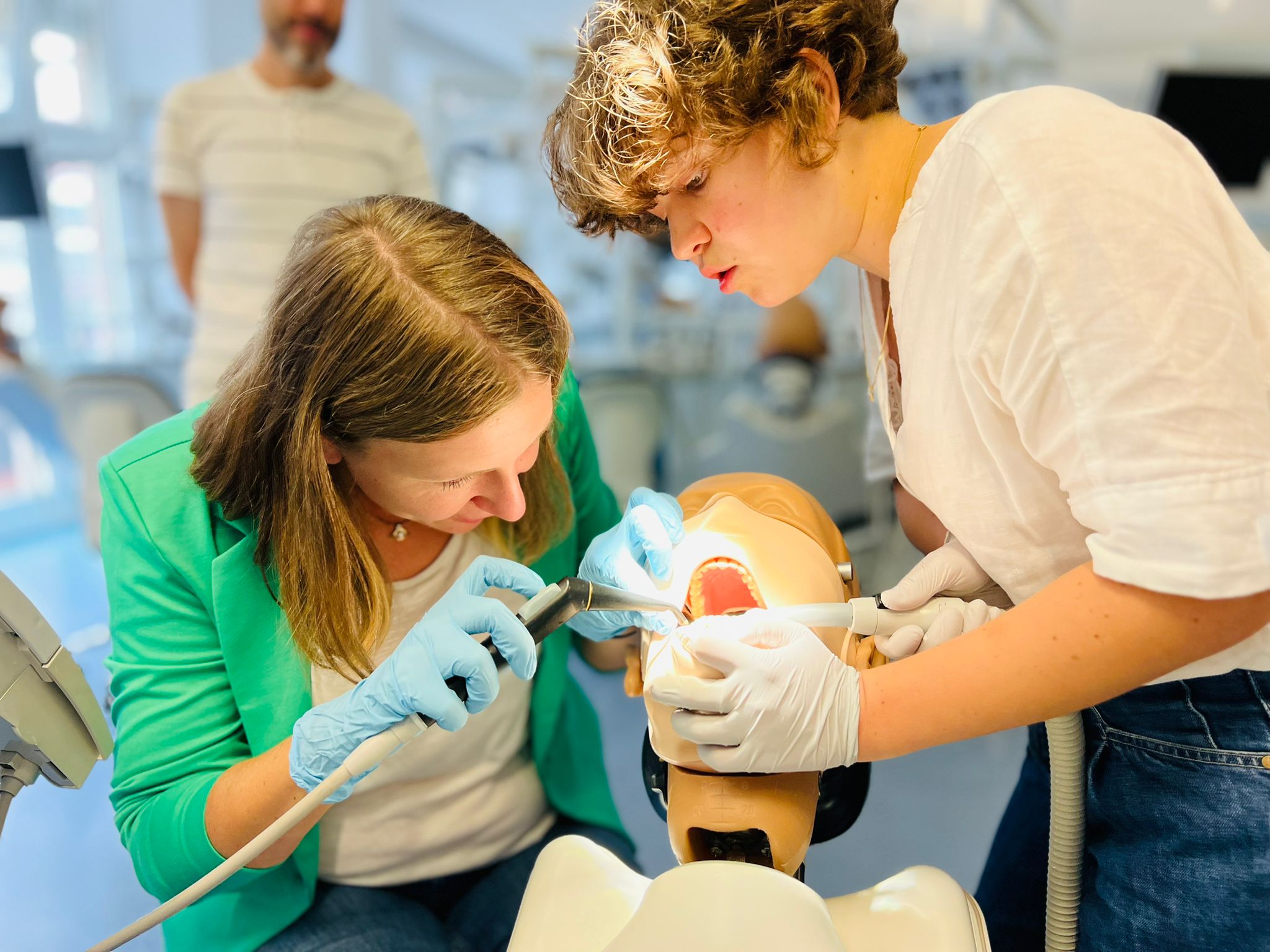

| Funding period: | Oct. 1, 2023 to Sept. 30, 2026 |
| Agency: | DFG |
| Funding scheme: | Normalverfahren (Sachbeihilfe) |
We acknowledge funding by the DFG Normalverfahren (Sachbeihilfe) project "Sensor systems for real time ultra-sensitive monitoring of processes and interactions in the oral cavity" (OralSens, grant agreement ID: CU 44/63-1)
A detailed understanding of bio-adhesion, bio-mineralization and metabolic processes in the oral cavity is of crucial importance in dental research. There are multiple interactions between oral fluids, the oral microbiota as well as soft and hard tissues. Many studies conducted research on metabolic processes based on end-point measurements of numerous parameters. However, there is still limited knowledge on the kinetics of important metabolites and ions within the oral cavity. Hence, the aim of the proposed project is the development of highly sensitive sensors for the continuous monitoring of clinically relevant organic and inorganic molecules within the oral cavity. This will allow deeper insight into the initiation and progression of oral diseases (e.g. erosion, caries, gingivitis, and periodontitis). Furthermore, this may offer new innovative options in the development of novel strategies in preventive dentistry. The oral cavity is an easily accessible clinical site for sensor technology. However, the complexity of oral fluids, instantaneous and ubiquitous protein adsorption processes as well as mechanical processes request for highly sophisticated adaptation of existing sensor technologies for the application within the oral cavity. We intend to develop miniaturized multi-sensor devices for the continuous measurement of glucose, lactate, pH, calcium, phosphate, and fluoride. These sensors will be adapted and elaborated for functionality within the oral cavity. For in situ applications, they will be mounted on individualized splints transmitting the measurements wirelessly via Bluetooth. The sensor application for continuous monitoring of the respective parameters according to alimentary and hygiene habits for many hours or ideally days is planned. On a longer-term perspective, sensors for additional parameters can be developed based on this research proposal. In future, such devices will be a valuable tool not only in basic research, but will also offer new perspectives towards personalized, non-invasive diagnostics in medicine and dentistry.



| Funding period: | Oct. 1, 2023 to Sept. 30, 2026 |
| Agency: | DFG |
| Funding scheme: | Normalverfahren (Sachbeihilfe) |
We acknowledge funding by the DFG Normalverfahren (Sachbeihilfe) project "Sensor systems for real time ultra-sensitive monitoring of processes and interactions in the oral cavity" (OralSens, grant agreement ID: CU 44/63-1)
A detailed understanding of bio-adhesion, bio-mineralization and metabolic processes in the oral cavity is of crucial importance in dental research. There are multiple interactions between oral fluids, the oral microbiota as well as soft and hard tissues. Many studies conducted research on metabolic processes based on end-point measurements of numerous parameters. However, there is still limited knowledge on the kinetics of important metabolites and ions within the oral cavity. Hence, the aim of the proposed project is the development of highly sensitive sensors for the continuous monitoring of clinically relevant organic and inorganic molecules within the oral cavity. This will allow deeper insight into the initiation and progression of oral diseases (e.g. erosion, caries, gingivitis, and periodontitis). Furthermore, this may offer new innovative options in the development of novel strategies in preventive dentistry. The oral cavity is an easily accessible clinical site for sensor technology. However, the complexity of oral fluids, instantaneous and ubiquitous protein adsorption processes as well as mechanical processes request for highly sophisticated adaptation of existing sensor technologies for the application within the oral cavity. We intend to develop miniaturized multi-sensor devices for the continuous measurement of glucose, lactate, pH, calcium, phosphate, and fluoride. These sensors will be adapted and elaborated for functionality within the oral cavity. For in situ applications, they will be mounted on individualized splints transmitting the measurements wirelessly via Bluetooth. The sensor application for continuous monitoring of the respective parameters according to alimentary and hygiene habits for many hours or ideally days is planned. On a longer-term perspective, sensors for additional parameters can be developed based on this research proposal. In future, such devices will be a valuable tool not only in basic research, but will also offer new perspectives towards personalized, non-invasive diagnostics in medicine and dentistry.
